Strengthening of active listening through the inverted classroom in a basic education institution in the city of Barranquilla
DOI:
https://doi.org/10.38017/1657463X.708Keywords:
Flipped classroom, didactics, active listening, society, teamworkAbstract
The purpose of this article is to demonstrate that the inverted classroom can be used as a tool to promote the strengthening of active listening. This work is part of applied research that was carried out in an educational institution in Barranquilla. The sample consisted of ten students, where three of them present special educational needs (SEN). A methodology was applied from the socio-critical paradigm, qualitative research, and the research-action approach. In turn, it was necessary to deploy five phases: observation, diagnosis, planning, execution and evaluation. The results obtained after applying the last workshop of the designed pedagogical proposal showed, that nine of the students listen to the ideas of others and share their own to carry out work collaboratively; eight of them listen and respond to the ideas of the other without using language or gestures that demean or ridicule them; nine use non-verbal language appropriately, such as looking at people who are part of the audience, maintaining a correct posture when speaking and listening, the appropriate tone of voice to be heard and gestures that indicate that they are actively listening and, only eight, listen and answer the questions asked promptly and without any deviations. Thus, it is concluded that the students made significant progress throughout the development of the proposal. It was demonstrated that the inverted classroom is a great tool to strengthen active listening, and leads to the acquisition of skills such as teamwork.
Author Biography
Erica Paola Tejedor Fuentes, Universidad del Atlántico
Licenciada en Español y Literatura de la Universidad del Atlántico, Colombia
References
Andrade, H. (2009). Definición y alcance de la comunicación organizacional. En C. Fernández (ed), La comunicación en las organizaciones 2a Ed (pp. 11‐15). Trillas. http://biblioteca.udgvirtual.udg.mx:8080/jspui/bitstream/123456789/3223/1/Definici%C3%B3n%20y%20alcance%20de%20la%20comunicaci%C3%B3n%20organizacional.PDF
Bayer, C. (2005). Comunicación eficaz, una competencia para lograr el éxito organizacional [monografía, Universidad de La Sabana] https://intellectum.unisabana.edu.co/bitstream/handle/10818/4624/130814.pdf
Berenguer, C. (2016). Acerca de la utilidad del aula invertida o flipped classroom. En M. Tortosa, S.
Grau y J. Álvarez (Ed.), XIV Jornadas de redes de investigación en docencia universitaria.
Investigación, innovación y enseñanza universitaria: enfoques pluridisciplinares. (pp. 1466-
1480). Alicante, España: Universitat d’Alacant. ISBN: 978-84-608-7976-3.
Bergmann, J., Aaron S. (2016). Dale la Vuelta a tu Clase. Biblioteca Innovación Educativa SM.
Beuchat, C. (1989). Escuchar el punto de partida. En lectura y vida. Lectura y vida. http://www.lecturayvida.fahce.unlp.edu.ar/numeros/a10n3/10_03_Beuchat.pdf.
Cabero, J. (2005) Cibersociedad y juventud: La cara oculta (buena) de la Luna, en Aguiar, M. V. y Farray, J. I. (2005), Un nuevo sujeto para la sociedad de la información (pp. 13-42) A Coruña, Netbjblo. Recuperado de http://tecnologiaedu.us.es/bibliovir/pdf/ciberjuve.pdf
Ceballos, H., Isaza. G. y Ramírez, D. (2014). Habla y escucha: Habilidades que se fortalecen a través del uso de las tecnologías de la información y de la comunicación (TIC) en estudiantes de grado octavo. Plumilla Educativa, Volumen 15 Número 1(2015) https://doi.org/10.30554/plumillaedu.15.844.2015
Dewey, J. (1899). La escuela y la sociedad.
Echeverría, R. (1994). Ontología del lenguaje. JC Sáez Editor.
Echeverría, R. (2002). Ontología del lenguaje; el escuchar: el lado oculto del lenguaje. JC Sáez Editor.
Echeverría, R. (2006a). Escrito sobre aprendizaje: Recopilación. Ediciones Granica SA.
Echeverría, R. (2006b). Actos del lenguaje volumen I: La escucha. JC Sáez Editor.
Elizondo, M. (1999). Asertividad y escucha activa en el ámbito académico. Trillas.
Falcones, E. y Yoza, R. (2018). Influencias metodológicas del desarrollo del pensamiento en el nivel de razonamiento lógico. propuesta: diseño de una guía didáctica con enfoque aula invertida [tesis de pregrado, Universidad de Guayaquil] http://repositorio.ug.edu.ec/bitstream/redug/26111/1/BFILO-PFM-18P01.pdf
García, J. (2009, 2 de enero). Comunicación: La escucha activa. psicoterapeutas.com Blog. http://www.psicoterapeutas.com/terapia_de_pareja/escucha_activa.html.
Herrera, S. (2003). El Aprendizaje Colaborativo como una Herramienta de la Actividad Tutoría [monografía, Universidad Autónoma de Campeche] https://docplayer.es/15782125-El-aprendizaje-colaborativo-como-una-herramienta-de-la-actividad-tutorial.html
Johnson, D., Johnson, R. (1991). Cooperative learning lesson structutres. Edina, M.N: Interaction Books.
Lomas, C. (2002). El aprendizaje de la comunicación en las aulas. Paidós.
López, J. (2006). Las competencias básicas del currículo en la LOE. [sesión de conferencia] V Congreso Internacional “Educación y sociedad”. https://iessecundaria.files.wordpress.com/2008/10/las-competencias-basicas-del-curriculo-en-la-loe-articulo-de-juan-lopez.pdf
MEN, (1998). Lineamientos curriculares de lengua castellana. https://www.mineducacion.gov.co/1621/articles-89869_archivo_pdf8.pdf
Ortiz, R. (2007). Aprender a escuchar, cómo desarrollar la capacidad de escucha activa. Lulu. http://www.aprenderaescuchar.es/images/AprenderaEscuchar_Preview.pdf
Prensky, M. (2010). Nativos e Inmigrantes Digitales.
Ramírez, A., Salinas, A., Sarmiento, B., Ayala, E., Pachón, J., Serrano, K., Moreno, L., Parra, L., García, L. (2009) La indiferencia y el descuido de la escucha en el aula [tesis de pregrado, Corporación Universitaria Minuto de Dios] https://repository.uniminuto.edu/bitstream/handle/10656/379/THUM_RealRusbert_09.pdf?sequence=3&isAllowed=y
Walvoord, B. y Johnson Anderson, V. (1998). Effective grading: A tool for learning and assessment. Jossey-Bass
White, D. y Le Cornu, A. (2011, 5 de septiembre). Visitantes y Residentes: Una nueva tipología para la participación en línea. First Monday, 16(9-5).
How to Cite
Downloads
Downloads
Published
Issue
Section
License
Copyright (c) 2021 Cultura científica

This work is licensed under a Creative Commons Attribution-NonCommercial-ShareAlike 4.0 International License.




